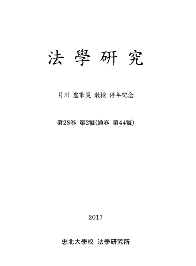학술논문
초등학생용 평가에 대한 태도 척도(SATA-Q) 개발 및 타당화
이용수 830
- 영문명
- Development and Validation of a Students’ Attitudes Toward Assessment Questionnaire(SATA-Q) for Elementary School Students
- 발행기관
- 한국교육평가학회
- 저자명
- 노현종(Hyunjong Noh) 손원숙(Wonsook Sohn)
- 간행물 정보
- 『교육평가연구』제31권 제1호, 155~179쪽, 전체 25쪽
- 주제분류
- 사회과학 > 교육학
- 파일형태
- 발행일자
- 2018.03.30
5,800원
구매일시로부터 72시간 이내에 다운로드 가능합니다.
이 학술논문 정보는 (주)교보문고와 각 발행기관 사이에 저작물 이용 계약이 체결된 것으로, 교보문고를 통해 제공되고 있습니다.

국문 초록
본 연구의 목적은 초등학생들이 평가에 대해 가지는 인지적․정서적 태도의 구성요인을 도출하고 측정할 수 있는 척도(Students’ Attitude Toward Assessment Questionnaire: SATA-Q)를 개발하여 타당화 하는데 있다. 이를 위해 D와 K지역 초등학교 5, 6학년 학생 610명을 연구대상으로 하였다. 먼저 선행연구를 바탕으로 평가에 대한 기대와 가치를 인지적 태도로, 평가에 대한 정적 정서와 부적정서를 정서적 태도로 개념화 하였고, 관련 문항을 수집하여 문항풀(item pool)을 구성하였다. 신뢰도와 타당도를 점검하기 위하여 Rasch 모형 분석 및 요인분석을 실시하였다. 최종적으로 SATA-Q는 인지적 태도 6문항(가치 4, 기대 2)과 정서적 태도 6문항(정적 2, 부적 4), 총 12문항으로 개발되었으며, 총괄평가와 형성평가 유형에 따른 태도를 각각 측정하였다. 연구결과, 내적합치도와 Rasch 모형 분석에서 적절한 수준의 신뢰도를 보였다. LCFA 분석에서는 4요인 구조가 타당한 것으로 나타났으며 평가 유형에 따른 측정동일 성이 확보되었다. 법칙론적 타당도를 점검하기 위하여 성취목표지향성 및 지능에 대한 신념과의 상관 관계를 알아본 결과, 접근목표와 지능 향상신념을 가질수록 평가에 대한 가치, 기대, 정적정서를 가지는 것으로 나타났으나 회피목표나 지능 고정신념을 가질수록 평가에 대한 부적정서를 경험하는 것으로 나타났다. 마지막으로 SATA-Q의 활용 방안 및 추후 연구에 대한 시사점을 추가하였다.
영문 초록
The main purpose of this study was to develop and validate elementary school students’ attitudes toward assessment questionnaire (SATA-Q) in either formative or summative assessment situations. The SATA-Q comprises four sub-factors through the theoretical frameworks based on the Expectancy-Value model and the Control-Value model. Expectation and value factor were included for the cognitive attitude, positive and negative affect were included for the affective attitude. To validate the SATA-Q, 165 fifth and sixth graders of elementary schools were participants in the pilot survey and 610 fifth and sixth graders were participants in the main survey. The results of the study are summarized as follows: First, SATA-Q with 12 items was accepted for both types of assessment(formative and summative assessment) by Rasch rating scale model and exploratory factor analysis. Second, Longitudinal confirmatory factor analysis supported the hypothesized four factor with different assessment type structure. Third, nomological validity of the questionnaire was verified by analyzing the correlations of the SATA with beliefs about intelligence and achievement-goal orientation. Expectancy, value, and positive affect had a positive correlation with the mastery/performance approach of goal orientation and incremental beliefs about intelligence. However, negative affect showed a positive correlation with mastery/performance avoidance and performance-approach goal orientation, and the entity beliefs about intelligence. Finally implications for SATA-Q research and limitations are discussed.
목차
Ⅰ. 서 론
Ⅱ. 이론적 배경
Ⅲ. 연구 방법
Ⅳ. SATA-Q 개발 과정
Ⅴ. SATA-Q 타당화 결과
Ⅵ. 논의 및 제언
키워드
해당간행물 수록 논문
- 수업참여와 학업성취도의 종단적 상호 관계와 변화 양상: 다차원 수업참여 모형
- 국가수준 학업성취도 평가 결과에 기반한 고등학생 학업성취도 영향요인 및 격차 탐색
- 일반화선형혼합모형을 이용한 학교 진단평가 방안
- 학생 자기평가의 학습효과에 관한 메타분석
- 종단 네트워크 측정 및 분석
- 인지진단이론의 학교 현장 적용 가능성 탐색: 모수 및 비모수적 접근 방법의 비교
- 초등학생의 학업지연 안정성 검증: 단기 종단적 접근
- 중학교 학생의 국어·수학 학업성취 프로파일에 영향을 미치는 비인지적 특성 탐색
- 다층구조방정식을 적용한 수학흥미와 수학적 자기효능감 및 학습 환경의 관계 분석
- 초등학생용 평가에 대한 태도 척도(SATA-Q) 개발 및 타당화
- 고등학생의 학업성취도가 교과태도에 미치는 학교맥락효과 :
- Two-Tier MIRT 관찰점수 동등화 방법의 적용 가능성 탐색
- 비교과 활동 참여 정도가 중학생의 인지적, 사회ㆍ정서적 발달에 미치는 종단적 영향력 탐색
- 다층맥락모형과 다층성장모형 간 학교부가가치 모수 추정의 정확성 비교
- 인지진단모형에 의한 중1 수학 ‘수와 연산’의 형성평가 도구 개발과 분석
참고문헌
관련논문
사회과학 > 교육학분야 BEST
더보기사회과학 > 교육학분야 NEW
- ICF Core-Set Autism Brief 기반 자폐성장애 영유아 언어 행동 평가 도구 개발에 대한 델파이 조사
- 생활지원중심 개별화교육계획(IEP)에 기반한 다요소행동중재가 지적장애학생의 자리이탈행동과 과제수행행동에 미치는 영향
- 일반학교의 정서행동 위기학생을 위한 긍정적행동지원 참여자의 인식과 경험, 지원 요구: 포커스그룹인터뷰
최근 이용한 논문
교보eBook 첫 방문을 환영 합니다!

신규가입 혜택 지급이 완료 되었습니다.
바로 사용 가능한 교보e캐시 1,000원 (유효기간 7일)
지금 바로 교보eBook의 다양한 콘텐츠를 이용해 보세요!






